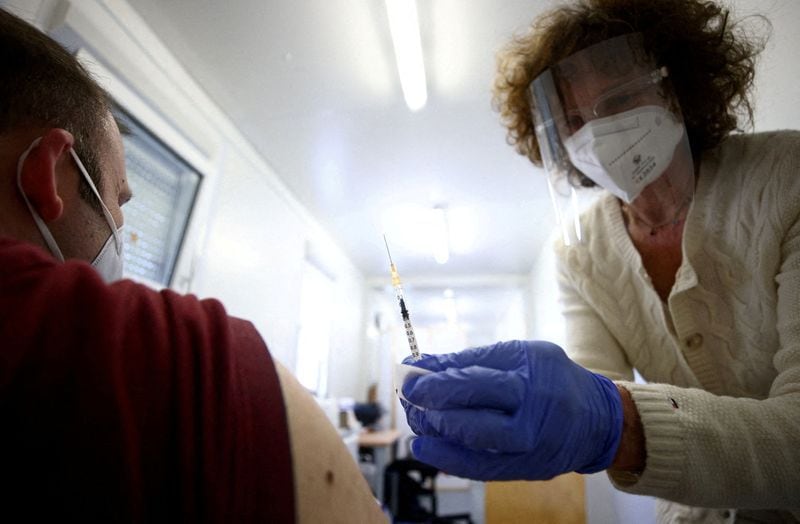
A study that has been presented at ESC Acute Cardiovascular Care 2022, a scientific congress of the European Society of Cardiology, has shown that vaccination against SARS-CoV-2 in patients suffering from previous inflammation in the heart muscle is not associated with a recurrence of the condition or other serious side effects.
Myocarditis is an inflammation of the heart muscle. Signs and symptoms include fatigue, chest pain, shortness of breath, and rapid heartbeat. Inflammation can reduce the heart's ability to pump and can also cause arrhythmias (irregular heartbeat). Prevalence is estimated at 10 to 106 cases per 100,000 people worldwide, according to the latest data from the World Health Organization (WHO). The main cause of myocarditis is viral infection.
“These results provide reassuring data that can encourage patients with a history of myocarditis to be vaccinated against SARS-CoV-2,” said the author of the study, Iyad Abou Saleh, a specialist at Hospices Civils in Lyon, France. It should be noted that most patients in our study received doses of BNT162B2 mRNA (Pfizer) and, therefore, the findings may not apply to other vaccines.”

In a UK study, it was estimated that between 1998 and 2017 there were 36.5 per 100,000 admissions to the British health system with myocarditis, and the numbers increased every year since 2004. In 2017, it was estimated that there were about 2000 hospital admissions for myocarditis. Overall, two-thirds of cases were in men, and men were significantly younger (median age 33) compared to women.
Recent scientific studies reported rare cases of myocarditis following SARS-CoV-2 vaccination with a prevalence of 2.1 cases per 100,000 inhabitants. However, there was a lack of data on the risk of myocarditis recurrence after SARS-CoV-2 vaccination in patients with a history of the condition.
Specialist Abou Saleh noted: “Our experience shows that, in some situations, patients have avoided vaccination because they or their family doctor were afraid that it could cause another episode of myocarditis. We hypothesized that vaccination against SARS-CoV-2 would not increase the risk of myocarditis recurrence in patients who had the condition in the past.”

The researchers included in their study all patients hospitalized at Hospices Civils de Lyon during the last five years (from January 2016 to June 2021) diagnosed with acute myocarditis. Patients were contacted by telephone and asked if they had been vaccinated, with which vaccine, how many times and whether they had side effects. Patients were also asked if they currently had COVID-19 or if they had contracted it in the past.
A total of 142 patients with a history of confirmed acute myocarditis were included in the study. The average age was 31 years and 20.3% were women. Among them, the vaccination status of 71 patients (50%) was known: 55 patients were vaccinated and 16 were not vaccinated. The main reason given for not being vaccinated was the fear of recurrence of myocarditis (12 patients, 75% of those not vaccinated).
The vaccination status of 66 patients was unknown and five patients had died before the COVID-19 outbreak. Among the vaccinated patients, 12 had one dose and 43 had two doses. Patients were mainly vaccinated with BNT162B2 mRNA (Pfizer, 53 patients, 96.4%). One patient received the mRNA-1273 vaccine (Moderna) and another received the AD26.CoV2-S vaccine (Johnson & Johnson).
Researchers also obtained information about post-vaccination side effects from medical records, aspects to be evaluated included serious events such as death, arrhythmias and recurrent myocarditis. There were no serious adverse events after vaccination against SARS-CoV-2.
“We showed that vaccination against SARS-CoV-2 in patients with a history of acute myocarditis is not associated with a risk of recurrent myocarditis or other serious side effects,” concluded Abou Saleh. Our results should be interpreted with caution because of the small number of patients and the predominant use of one type of vaccine.”
KEEP READING:
Últimas Noticias
Debanhi Escobar: they secured the motel where she was found lifeless in a cistern
Members of the Specialized Prosecutor's Office in Nuevo León secured the Nueva Castilla Motel as part of the investigations into the case

The oldest person in the world died at the age of 119
Kane Tanaka lived in Japan. She was born six months earlier than George Orwell, the same year that the Wright brothers first flew, and Marie Curie became the first woman to win a Nobel Prize

Macabre find in CDMX: they left a body bagged and tied in a taxi
The body was left in the back seats of the car. It was covered with black bags and tied with industrial tape
The eagles of America will face Manchester City in a duel of legends. Here are the details
The top Mexican football champion will play a match with Pep Guardiola's squad in the Lone Star Cup

Why is it good to bring dogs out to know the world when they are puppies
A so-called protection against the spread of diseases threatens the integral development of dogs




